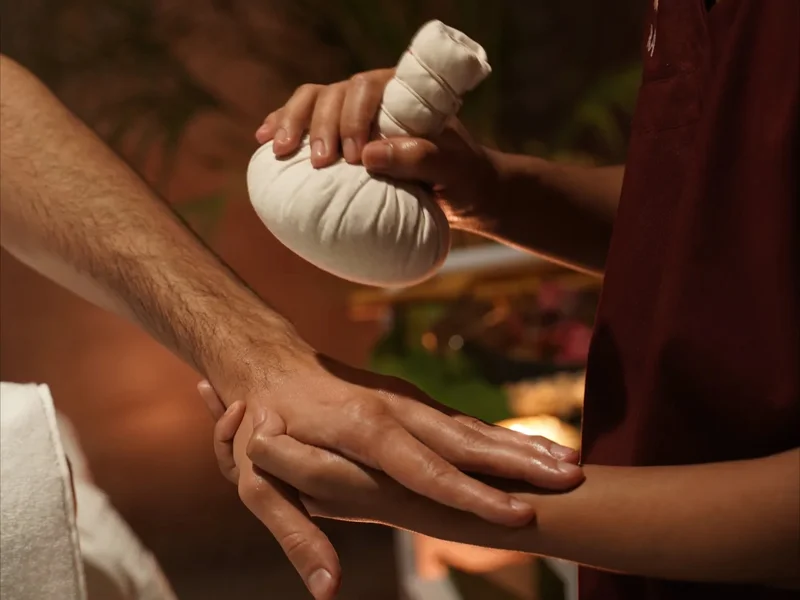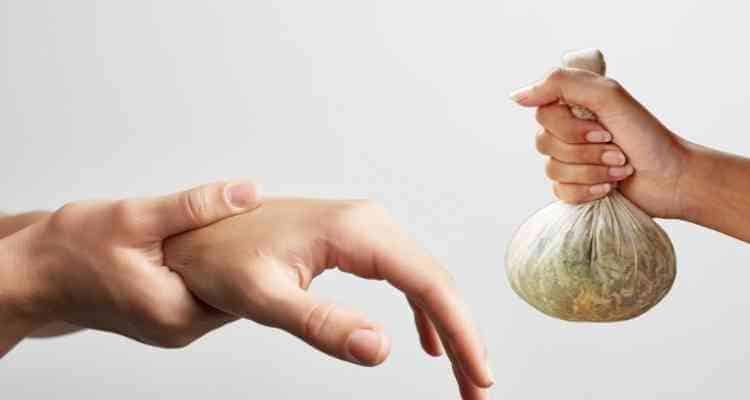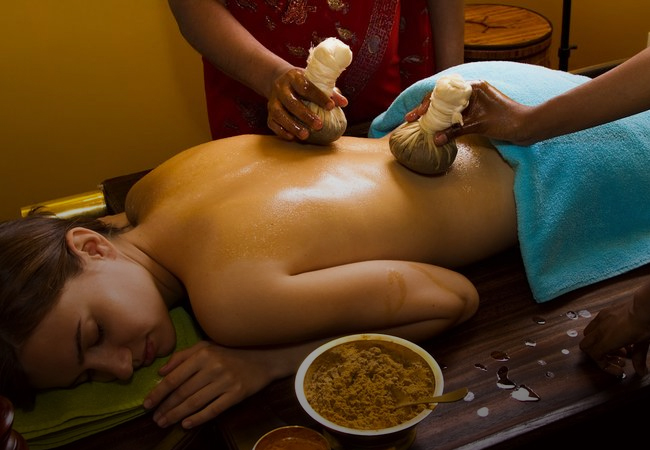Ask Ayurvedic doctor a question and get a consultation online on the problem of your concern in a free or paid mode. More than 2,000 experienced doctors work and wait for your questions on our site and help users to solve their health problems every day.
Amavata Shloka – Understanding the Ayurvedic View on Rheumatism

Introduction to Amavata Shloka
The Amavata Shloka is a significant verse in Ayurvedic texts that explains the nature of Amavata, an autoimmune disorder that causes pain and inflammation in the joints, commonly known as rheumatoid arthritis. Ayurveda provides a comprehensive view of this condition, focusing on the balance of Vata, Pitta, and Kapha doshas, as well as the accumulation of Ama (toxins) that disrupts the body's normal function. The Amavata Shloka highlights the causes, symptoms, and treatment options for this condition, providing insights into how Ayurvedic principles can offer natural relief.
Don't wait or self medicate. Start chat with Doctor NOW
The Amavata Shloka
The following verse, often cited in Ashtanga Hridayam and Charaka Samhita, provides an explanation of Amavata:
"Sannipataja roga, ama ja, Vata dharane, Sparsha pariksha jvara, hridrogah, kandurugnah."
Translation:
- Sannipataja roga: A disease caused by the disturbance of all three doshas, primarily Vata, Pitta, and Kapha.
- Ama ja: The condition that arises due to the accumulation of Ama (toxins).
- Vata dharane: The involvement of Vata dosha in the body.
- Sparsha pariksha jvara: Painful joints (due to inflammation), especially in the hands, knees, and other parts of the body, which are aggravated by touch or movement.
- Hridrogah, kandurugnah: Accompanying symptoms of heart pain and swelling of muscles.
This verse describes how Ama (toxins) mix with disturbed Vata to create inflammation in the joints, leading to the painful condition we call Amavata.
Key Concepts of Amavata Shloka
1. The Role of Ama in Amavata
In Ayurveda, Ama refers to undigested food or toxins that accumulate in the body due to poor digestion. These toxins can circulate throughout the body, causing various diseases, including Amavata. According to the shloka, Ama combines with the disturbed Vata dosha, leading to inflammation and joint pain.
2. Vata Dosha’s Contribution
Vata, responsible for movement and balance within the body, plays a central role in Amavata. When Vata becomes aggravated, it disrupts the normal function of the digestive system and causes pain, stiffness, and inflammation, particularly in the joints.
3. Symptoms of Amavata
The shloka mentions symptoms like pain in the joints, heart discomfort, muscle swelling, and fever. These symptoms are aggravated by touch or movement, making daily activities challenging for those affected by this condition.
4. Treatment Insights
Ayurvedic treatment for Amavata focuses on balancing the doshas, particularly Vata, and clearing the body of Ama. Common Ayurvedic treatments include detoxification therapies such as Panchakarma, herbal remedies like Ashwagandha, Guggulu, and Turmeric, and lifestyle changes to support digestion and immune function.
How Ayurveda Approaches Amavata
Ayurveda recognizes that Amavata is a complex condition caused by the interplay of several factors, including poor diet, irregular lifestyle, and emotional stress. The key to treating this condition lies in addressing the root cause:
1. Detoxification and Ama Removal
The first step in treatment is the removal of Ama from the body. Panchakarma, a detoxification therapy in Ayurveda, is often recommended to purify the body and restore balance.
2. Strengthening Digestion (Agni)
The digestive fire (Agni) must be strengthened to prevent further accumulation of Ama. This involves dietary adjustments, including consuming warm, easily digestible foods, and using digestive herbs like Trikatu and Ginger.
3. Balancing Vata Dosha
To reduce the symptoms of Amavata, it is crucial to balance the Vata dosha. This is done through a combination of herbal oils, massages, and lifestyle changes that promote stability and grounding.
4. Anti-inflammatory Herbs
Herbs like Ashwagandha, Guggulu, and Turmeric are known for their anti-inflammatory properties and are commonly used in the treatment of Amavata to reduce joint pain and inflammation.
Conclusion & Expert Insights
The Amavata Shloka offers a clear understanding of the Ayurvedic perspective on rheumatoid arthritis. It emphasizes the importance of addressing both the accumulation of Ama and the imbalance of Vata to effectively treat this painful condition. Through Ayurvedic therapies like Panchakarma, herbal treatments, and lifestyle modifications, Amavata can be managed and, in many cases, alleviated. If you are struggling with symptoms of Amavata, consult with a certified Ayurvedic practitioner to explore tailored treatments that can help restore your health and vitality.
References & Further Reading
- Charaka Samhita – The Foundation of Ayurveda
- Ashtanga Hridayam by Vagbhata
- Lad, V. (2002). Ayurveda: The Science of Self-Healing.
- Journal of Ayurveda and Integrative Medicine for research on treating Amavata.



